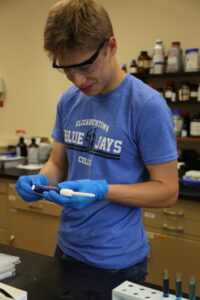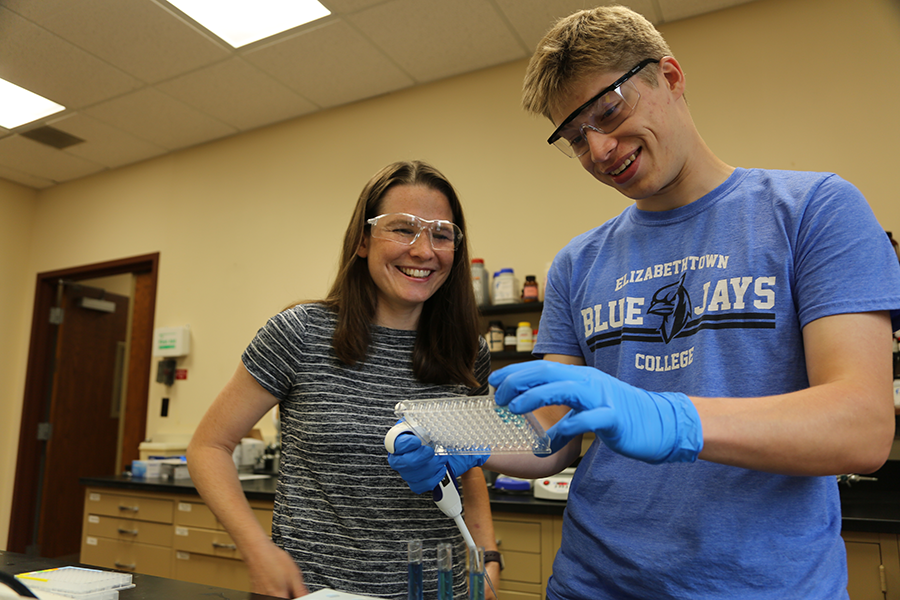Elizabethtown College student Justin Cosgrove ’25 is on campus this summer, developing magnetic beads to help increase the speed, sensitivity, and selectivity of current tests for Lyme disease. The beads are used to increase the surface area of where the reaction takes place, while antibodies are used to help detect biomarkers affiliated with Lyme. While the research is in its developmental phase, in the future, the project hopes to be used in clinics.
The independent student research and collaboration with an Etown faculty mentor is part of the Summer Creative Arts and Research Program (SCARP) program.
Title of Research
Development of Sensitive and Fast Immunoassay for Lyme Disease
Student Researcher
Justin Cosgrove ’25 (Biochemistry and Molecular Biology major)
Faculty Mentor
Lauren Toote, Assistant Professor of Chemistry
What are you researching?
Justin: The purpose of my research is to use an ELISA (Enzyme-Linked Immunosorbent Assay) to create a more accurate and time-efficient test for Lyme disease. I’m working to become proficient in and optimize the ELISA in the magnetic bead format, which presents the best opportunity to provide the greatest improvements in accuracy and time required to receive results.
Why did you choose this topic?
Justin: I chose this topic due to its wide application to society. An improvement to what is currently in place would be able to help a lot of people.
What is the most interesting aspect of your research?
Justin: The most interesting aspect of my research is learning how much I don’t know yet, but more importantly what there is to learn.
How has your faculty mentor helped you?
Justin: Dr. Toote’s availability and expertise in the subject gave me what I needed to be able to contribute to the project as well as grow my knowledge and skills as a whole.
Hear from the faculty mentor – Lauren Toote
“Current Lyme disease diagnostic tests are unreliable, often leading to false negatives and patients going untreated for long periods of time. This results in more serious and long-term symptoms. Our test will be faster and we also hope, more reliable, which will decrease the time to treatment.”

